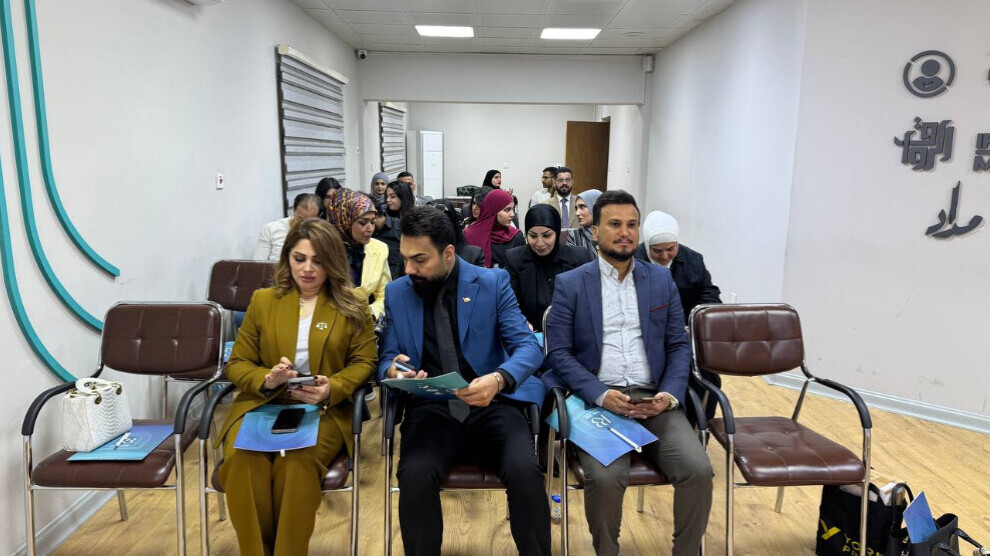A Dialogue Workshop in Baghdad Explores Ways to Enhance Youth and Women’s Electoral Participation
As Iraq’s election date draws near, efforts are intensifying to boost public participation- especially among youth and women- since electoral awareness is considered a cornerstone for strengthening democratic practice.

Rajaa Hameed Rasheed
Iraq - The Riwaq Baghdad Center for Public Policy, in cooperation with the Independent High Electoral Commission (IHEC), organized an open dialogue workshop on Saturday, October 25, to discuss the state of electoral participation ahead of the upcoming elections scheduled for early November. The goal was to enhance youth and women’s engagement in Iraq’s democratic process.
The workshop, which saw broad participation from both youth and women, aimed to raise awareness about the importance of electoral participation, rebuild citizens’ trust in democracy, and encourage women and young people to play an active role in the upcoming elections. Participants discussed the electoral process and sought practical solutions to strengthen their engagement in future elections.
The session was facilitated by Nebras Abu Souda, an international trainer with the Independent High Electoral Commission, who addressed several key topics, including: the importance of women’s participation, the reasons behind youth and women’s disengagement from elections, how to overcome voter apathy, and practical ideas and initiatives to increase youth and women’s turnout.
The Importance of Electoral Participation
During the workshop, Nebras Abu Souda emphasized the significance of women’s and youth’s involvement in Iraq’s parliamentary elections. She reviewed the development of electoral participation in Iraq from 2005 to 2021, analyzing participation rates and the roles of women and youth in supporting the democratic process.
She explained: “Although Iraq has undergone major political and constitutional transformations since 2003, both youth and women continue to suffer from weak political representation and limited participation in the electoral process. Despite the fact that more than half of Iraq’s population is under 30 and the country has a large female demographic, these groups remain underrepresented in political life- both as voters and as candidates.”
Abu Souda pointed out several reasons for declining voter turnout in past elections, such as: lack of trust in the political system and institutions, domination of traditional elites over political parties and electoral lists, social and cultural constraints on women’s participation, and limited empowerment of marginalized groups within party programs or legislation. She noted that improving youth and women’s participation in Iraq is not only a democratic right but also a necessity to rebuild trust in the electoral process and renew political life with new voices that reflect society’s aspirations- especially amid the country’s ongoing political, economic, and social challenges.
Meanwhile, Yaqeen Abdul Ameer, an activist and coordinator of the Project for Protecting the Information Environment in the Electoral Process, stated that the purpose of the workshop- organized in collaboration with the IHEC and several civil society organizations monitoring elections- was to increase youth and women’s participation and identify the main causes of electoral disengagement in the upcoming elections.
The workshop also discussed the women’s quota system and its impact on increasing female representation in the Iraqi parliament, as well as the challenges facing young people in running for office and engaging politically. Participants reviewed successful Arab experiences in this field, such as those of Tunisia and Jordan.
The event concluded with an interactive exercise titled “What if we participate? And what if we boycott?” aimed at developing critical thinking and illustrating the impact of both participation and abstention on decision-making, while raising awareness about the importance of positive engagement in the democratic process.
